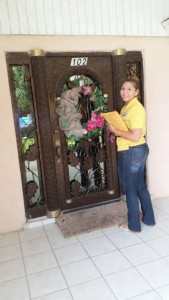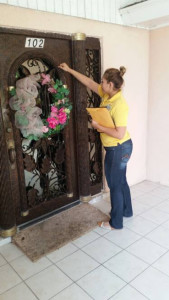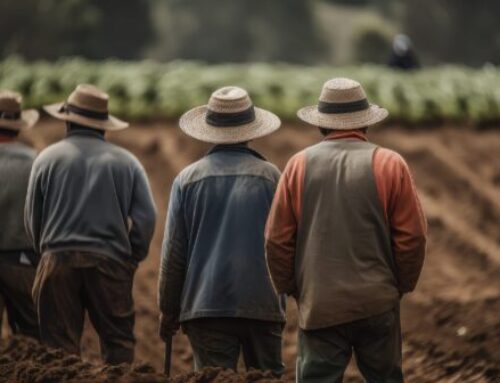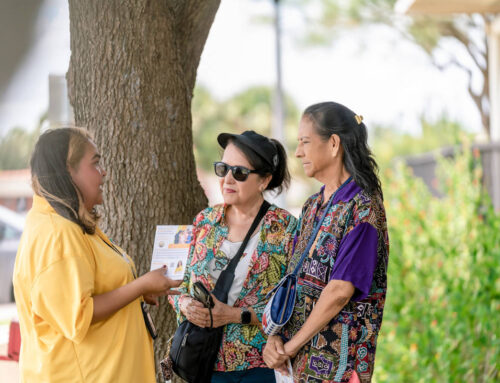New Starr County Program Conducts Needs Assessment Using Promotor(a) Model
Promotores(as) have been getting enormous attention in recent years for their potential impact on directly connecting difficult-to-reach populations and health care. MHP Salud has built several programs that enable Promotores(as) to do just that.
However, Promotores(as) can also create health changes on a more systemic level. Starr County Rural Health Network member MHP Salud will use the Promotor(a) model to conduct a needs assessment of Starr County, Texas.
Needs assessments are used to gauge the health strengths and weaknesses present in a community, and for the same reason Promotores(as) may be better able to communicate with members of their own community than an outsider, they are also well-suited to observe and document the holistic status of health in their communities.
Starr County, part of Texas’ Lower Rio Grande Valley, grapples with socio-economic and health-related challenges, including low educational attainment, low rates of health insurance, high rates of poverty, limited healthy food access and a lack of medical resources.
Belia Cantu, the Promotora working on the program, has lived in Starr County for most of her life. Although she loves that her community feels like “one big family,” she acknowledges that there are serious health needs in the county.
“We don’t have a lot of doctors, and people often leave the county to see a specialist,” she said. “Diabetes is also a big issue here, and people don’t always know how to go about preventing it or managing it once they have it.”
Of course there are already resources that exist, such as the U.S. Census, that collect population information, but Program Director Bradley Klos says that sometimes, those resources don’t paint the whole picture.
“In a lot of cases, the Census doesn’t collect information from a lot of people in Starr County, because they simply don’t open the door for the canvasser,” he said. “The people who aren’t being counted often have the greatest needs and least access to resources.”
Though staff on the Starr County Rural Health Network Development Planning Program do not propose to immediately solve the county’s deep-rooted social and health problems, they believe this program will enable them to collect more nuanced information about county residents who may otherwise be unaccounted for.
“The needs assessment is a way to fill in the gaps for that information and allows people to use that data to apply for grants and it helps stakeholders more efficiently use their resources,” he said.
The program will differentiate itself from more standard information collection processes by employing a Promotora to conduct information collection throughout Starr County.
“I think Promotores(as) directly address the gaps that the Census tends to have—people open the door for them,” said Brad. “The first question a community member might ask someone is ‘Where are you from?’ and Belia can say she’s from the same community, which allows her to solicit more honest information from the people she surveys.”
The program will collect and analyze information from a county-wide Needs Assessment and then harness that knowledge into a strategic plan for the Starr County Health Network to build on the county’s strengths and address its greatest weaknesses. Other Network members include Nuestra Clinica del Valle, Rio Grande City Public Library, Starr County Memorial Hospital and The Pediatric Care Center.
“I am excited to be a part of the program,” said Belia, “because it’s the first time we’re actually just focused on Starr County, and it will allow people to not only understand our health needs, but also acknowledge the whole person.”
About MHP Salud
MHP Salud has over thirty years of experience implementing CHW programs and training organizations looking to start and/or strengthen their own CHW programs. For more information about MHP Salud, our services, and how we can help you, please email us at info@mhpsalud.org









